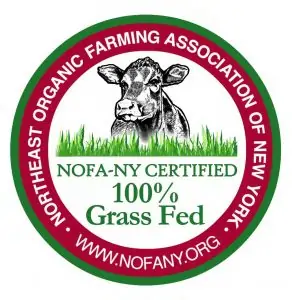
The NOFA-NY Certified 100% Grass Fed label is highly meaningful and verified. It means that the animals used to produce meat and dairy were raised on certified organic farms, and in addition, meat animals must be fed 100% grass or grass-based feed for the entire life of the animal with the exception of milk prior to weaning. Dairy cows must be managed on 100% grass or grass-based feeds for at least 90 days before being eligible to sell milk as NOFA-NY Certified 100% Grass Fed.
Is the label verified?
Yes
Is the meaning of the label consistent?
Yes
Are the label standards publicly available?
Yes
Is information about the organization publicly available?
Yes
Is the organization free from conflict of interest?
Yes
Was the label developed with broad public and industry input?
Yes
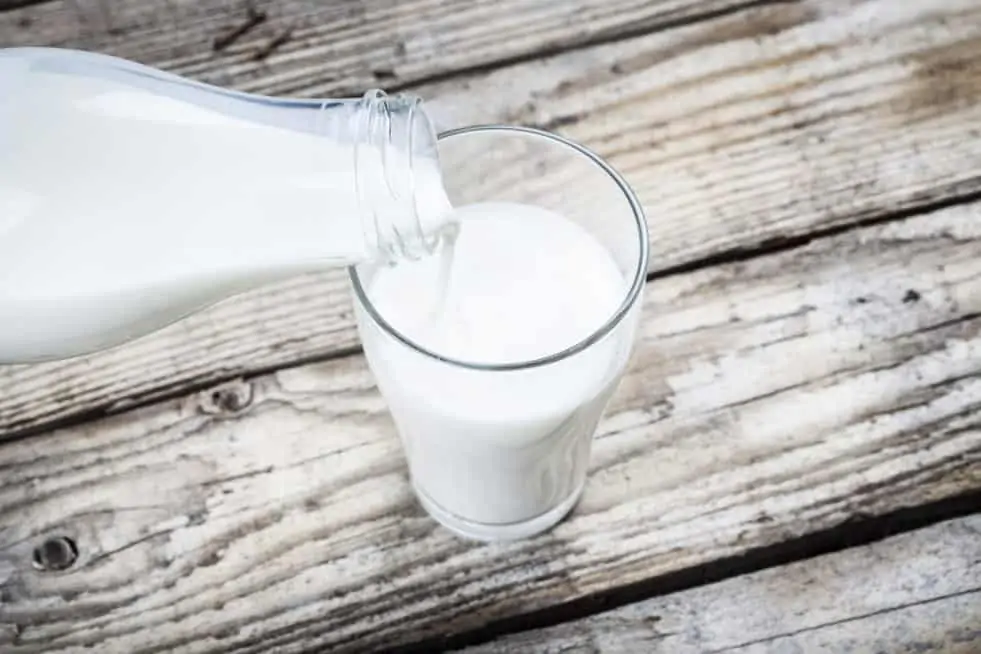
This label can be found on: beef, dairy products
PROGRAM NAME: NOFA-NY 100% Grass Fed
ORGANIZATION: Northeast Organic Farming Association of New York
url: www.nofany.org
LABEL STANDARDS: https://www.nofany.org/certification/forms-documents/grass-fed
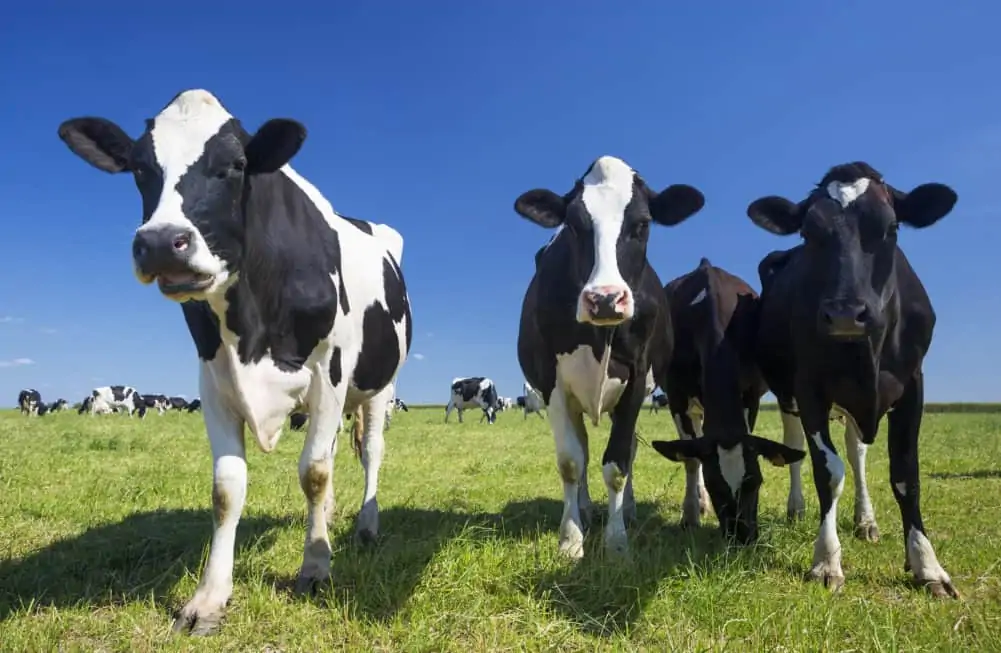
What this label means
The label means that the animals used to produce meat and dairy were raised on certified organic farms, and in addition, meat animals must be fed 100% grass or grass-based feed for the entire life of the animal with the exception of milk prior to weaning. Dairy cows must be managed on 100% grass or grass-based feeds for at least 90 days before being eligible to sell milk as NOFA-NY Certified 100% Grass Fed.
The standards require that grazing and intake from pasture must be maximized as much as possible and animals must have continuous access to pasture during the growing season. Producers must have a pasture management plan in place to show pasture is being managed as a crop and is being rotated to allow for proper rest and regrowth before the animals are reintroduced to the area, and is managed in a way that does not degrade the soil or quality of the pasture and natural resources (with the exception of a “sacrifice area” during the non-growing season).
Animals have to be managed in accordance to the USDA organic standards, which means the animals cannot be treated with antibiotics or artificial hormones to promote growth. Organic standards also prohibit the use of synthetic herbicides and pesticides on pasture and crops. Genetically engineered crops, such as genetically engineered alfalfa (hay), are also prohibited.
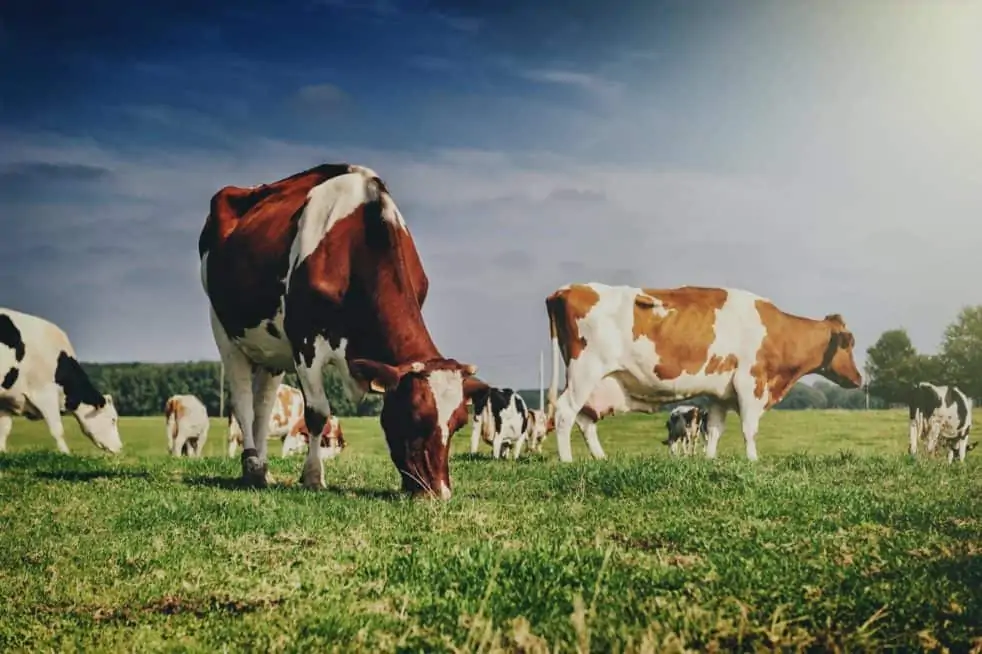
Why it matters
Beef and dairy cattle are ruminants, and their digestive systems have evolved to digest high-fiber and low-starch grasses. They gain weight more rapidly when they are fed grain in addition to grass, which has become standard practice in the beef and dairy industries, but grain-feeding comes with a cost to the nutritional value of the meat and dairy they produce, and the animals’ digestive health.
Nutritional benefits. Studies suggest that there are important health benefits from consuming 100% grass‐fed meat and dairy compared with grain-fed meat and dairy. Studies have found that, compared to grain-fed alternatives, grass-fed meat contains lower levels of overall fat and higher levels of vitamins and antioxidants; grass-fed meat and dairy have also been found to have higher levels of omega-3 fatty acids, which appear to provide health benefits.
Animal health benefits. Ruminants on a grass-based diet without grain are less likely to suffer from gastrointestinal disorders such as acidosis. With acute acidosis, the acidity level and glucose levels in the animal’s intestines increase markedly due to grain consumption, leading to damage to the intestinal wall or other health conditions.
Another health effect of a high-grain diet for cattle is a higher rate of liver abscesses. For prevention of liver abscesses in grain-fed cattle, the FDA has approved numerous antibiotics that can be added to cattle feed – the same grain-based feed that is often contributing to the abscesses in the first place. Antibiotics approved for this purpose include the critically important antibiotics tylosin, ceftiofur, virginiamycin and chlortetracycline. A sustainable way to prevent liver abscesses is to promote healthy animals with a species-appropriate diet of grass and forage.
CONSUMER REPORTS EVALUATION
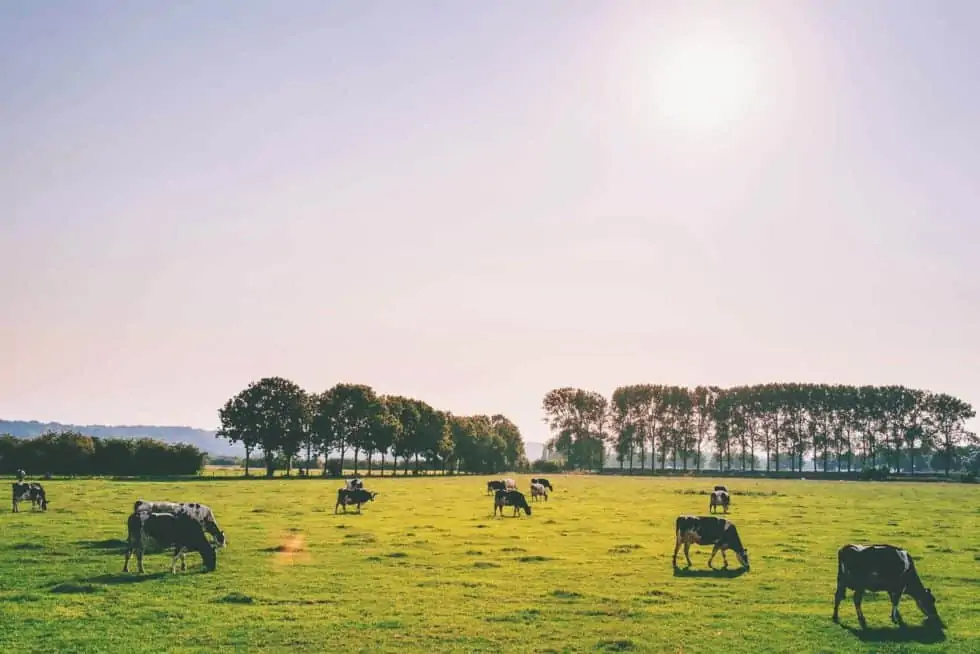
How meaningful is this label?
Highly Meaningful.
This label combines organic certification with verification that the animal’s diet consisted of 100% pasture and forage, with no grain, for the entirety of a meat animal’s life and for at least 90 days prior to milking for a dairy cow.
It is especially important to look for verification of “Grass Fed” claims on dairy. The Food and Drug Administration (FDA) regulates labeling on dairy products, and does not have a regulatory definition for the grass fed claim. Dairy products can be labeled “grass fed” without verification, and companies can make “grass fed” claims when the cows’ diet consisted of some grass, but 100% grass-based diet is not required. A verified “Grass Fed” label, such as NOFA-NY Certified 100% Grass Fed, is therefore especially important.
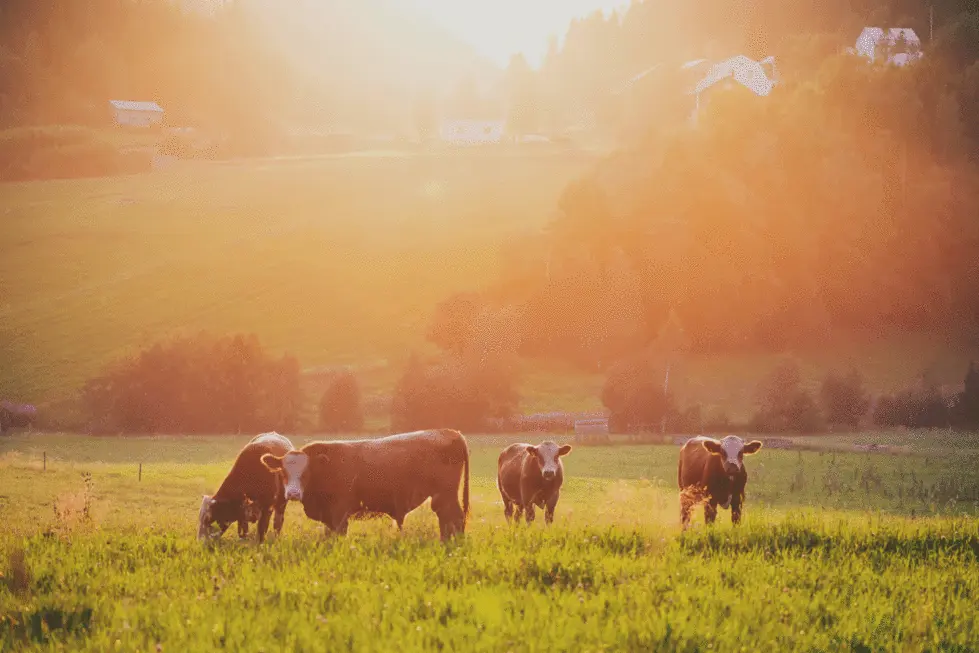
Is the label verified?
Yes.
An annual inspection is required and is conducted together with the annual inspection required for organic certification.
Is the meaning of the label consistent?
Yes.
Are the label standards publicly available?
Yes.
Standards are available on the NOFA-NY website: https://www.nofany.org/files/NOFA-NY_Grass_Fed_Certification_Manual.v2.pdf
Is information about the organization publicly available?
Yes.
Board of Directors: Yes. A list of the members of the Board of Directors, and their affiliations, is available on the website.
Financial information: Yes. Financial information for NOFA-NY is publicly available.
Is the organization free from conflict of interest?
Yes.
Standards development: Yes. Final approval of standards is granted by the Management Committee, which is free from conflict of interest.
Verification: Yes. NOFA-NY has a comprehensive conflict of interest policy that excludes persons with a conflict of interest from the certification and verification process.
Was the label developed with broad public and industry input?
Yes.
Standards development: The standards were developed by the NOFA-NY Grass Fed Certification Committee through examination of other existing grass fed certification programs, market research, and consultation with knowledgeable industry grass fed specialists. Grass fed producers were also consulted prior for input in the development of these standards.
Standards updates: Updates to the standards are proposed by the NOFA-NY certification staff, and approved or denied by the Management Committee. A draft of the standards is shared with grass fed producers for their input before finalizing and implementing changes. A draft is not posted on the website for public comment.